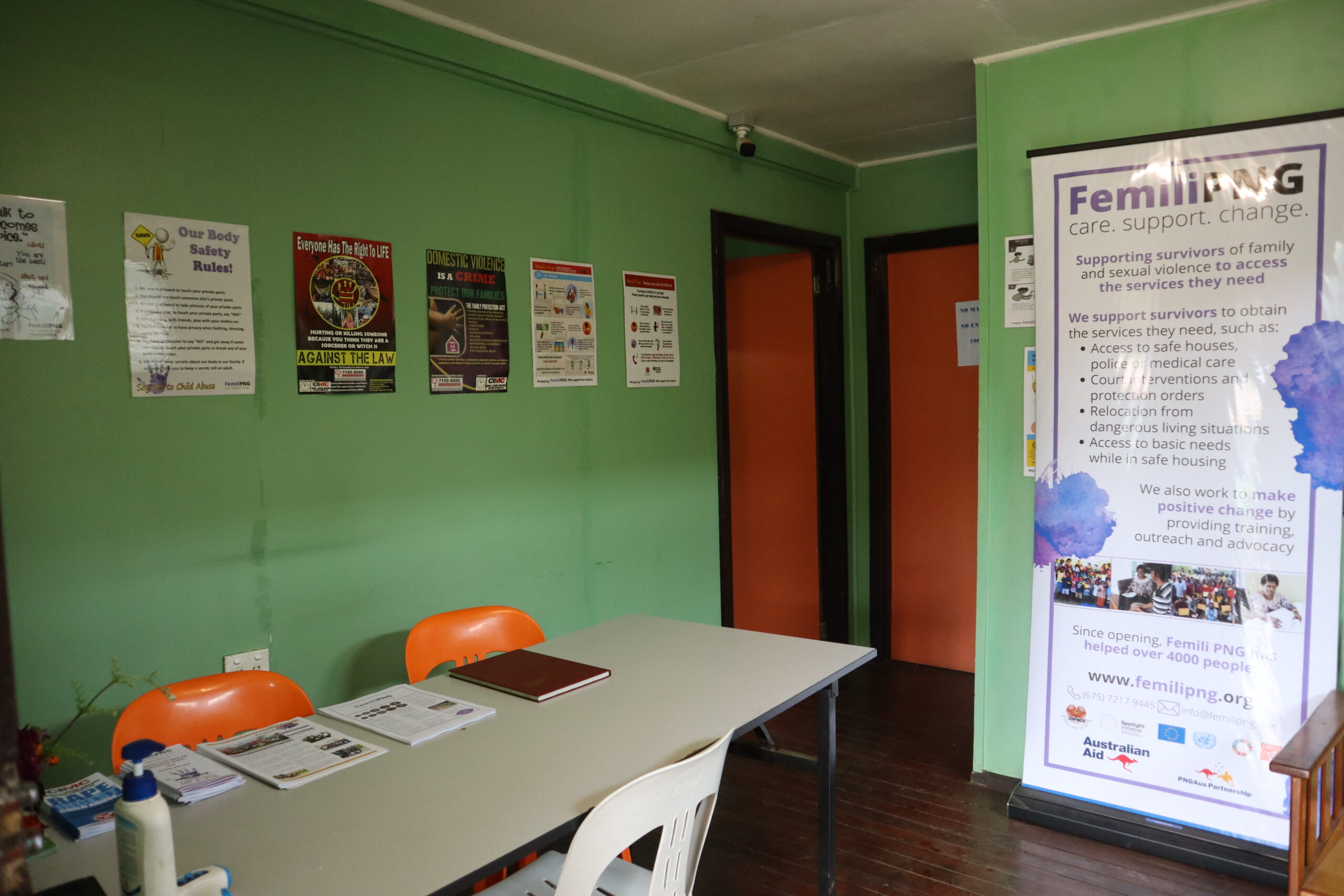As a community based organisation that works to help survivors of family and sexual violence (FSV), it is paramount that Femili PNG has its own policies in assisting its very employees, when they find themselves in abusive relationships. Femili PNG is proud to be operating the Bel isi case management centre in Port Moresby, working closely with various service providers and the Bel isi subscribing companies assisting employees and the public in general.
In 2016, Femili PNG documented and approved its own workplace policy on FSV. The policy guides the organisation on how to respond and support employees when experiencing violence. Femili PNG CEO Ms. Daisy Plana said that as per the policy, the organisation encourages its employees to speak up, seek support, and get appropriate intervention, especially when their lives are at risk.
“If a staff experiences violence, she or he is encouraged to seek support, register their case at the case management centre and the case goes through a normal process like any survivor who is assisted by Femili PNG,” says Ms. Plana.
Femili PNG endeavours to create a violence free workspace, including a zero tolerance policy on FSV emphasised through its annual policy staff orientation across the three case management centres in Lae, Goroka and Port Moresby. As a strategic way in educating staff on the policy, Femili PNG ensures that newly hired staff are well oriented and inducted during their first week of work.
Femili PNG’s FSV workplace policy has also helped employees. Ms. Plana said that violence occurs in different levels, regardless of education and status in life. Hence, services should be available to anyone experiencing FSV and seeking help. Therefore, she recommends companies developing their own policies to assist their employees. This policy will allow employees to have an avenue to speak and ask for support in confidence, having faith that their story will be dealt with confidentially.
When asked about what learning is there to share with others, Ms. Plana said, “We understand that making decisions to come forward and seek support when experiencing FSV takes time. We must respect the readiness of the person. Companies who implement an FSV policy will greatly assist employees to make informed decisions.”
In calling for action, Ms. Plana strongly believes that it will be good for organisations who have male employees to come up with a male support group to create an environment where male survivors would want to come forward to discuss their matters and challenges freely. She highly recommends that creation of male support groups will take the lead in the work of FSV in every business houses.
Our Case Work Manager for Bel isi Case Management Centre Chananyah Dawidi, shares her experience of the recent Bel isi PNG Leadership Forum she attended.
“The Leadership Forum that we attended was one of the first official events for me to attend since coming into the role of casework manager. It was a very overwhelming experience for me to begin with.
There were so many discussions around the topic of “what role men play” and how these roles can promote gender empowerment and equity. It was interesting hearing from other organisations connected through Bel Isi on how they have certain programs, trainings and policies in place that created an environment for women to take the lead and prosper in these lead roles. It was more interesting because from Femili PNG we do promote gender equity however our staffing is female dominated already that it was nice hearing from other organisations, how they motivate and empower women to take lead roles.
The main agenda that really captured my interest was the challenge women face when been given the responsibility of managing or directing an organisation. Many women can be put in these lead roles, however how can the organization create the right environment for them to fully perform in these roles. As we all know, women have a much greater responsibility and expectation back in their family homes and it is not the same with men. In turn, this becomes a challenge of all women in lead roles, how are they to balance the expectations of work against the expectations of their household/family. This makes it harder for women to continue to want to stay in lead roles and that is a contributing factor to why women often cannot continue in this roles.
I believe that if an organization can provide more enablers like proper healthcare insurance, transportation, and other childcare needs to not only support women but the family unit then we will be able to see more women coming out and wanting to be given the opportunity to stay in these lead roles.”



